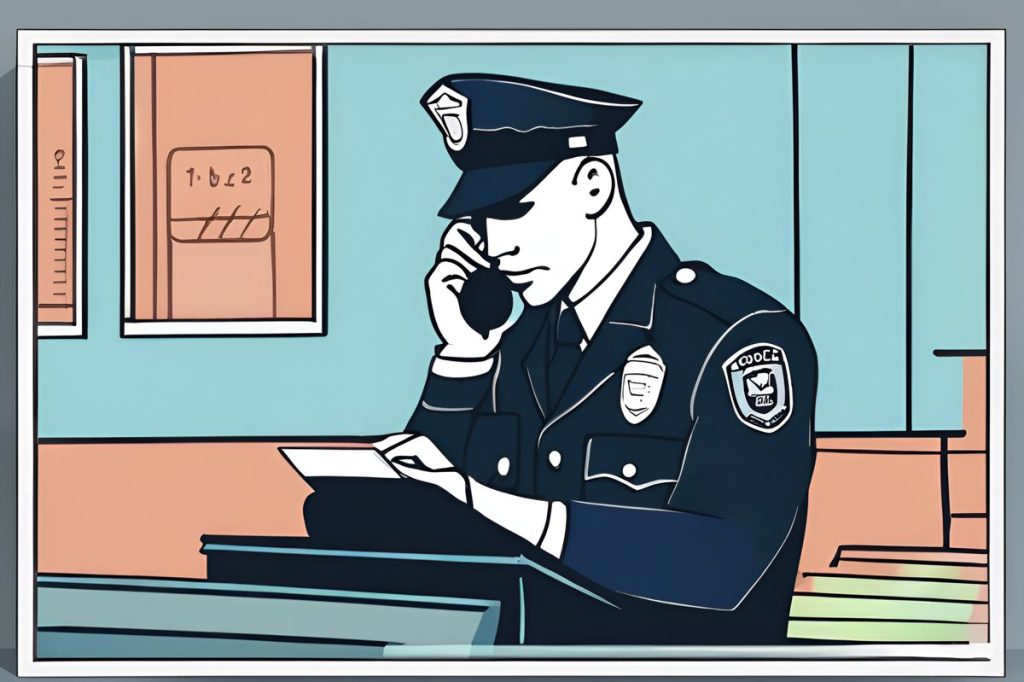The police chief has mandated a new directive requiring officers to respond to emergency calls within ten seconds, aiming to provide immediate assistance and rebuild public trust after a fatal incident involving a delayed response. This policy shift emphasizes the importance of swift action, professionalism, and responsibility in emergency services to ensure that every call for help is answered promptly and effectively.
What is the new directive mandated by the police chief for emergency response?
The police chief has mandated that all officers answering emergency lines 112 and 199 must respond within ten seconds. This directive aims to ensure immediate assistance, reduce administrative delays, and rebuild public trust in emergency services after a delayed response resulted in a fatal incident.
Swift Action Directive
A policy shift has emerged within the police department against the backdrop of a tragic incident. The police chief has recently mandated a new directive in response to public disquiet following a case of domestic violence that had fatal consequences. The leaked memo, dated June 21, demands that all officers manning emergency lines 112 and 199 must answer calls within a ten-second timeframe.
This development follows the suspension of two police officers and the investigation of seven in total after the murder of Petya Krateva. Reports indicate that when the violence escalated between Krateva and her ex-husband, her neighbors sought police intervention. Unfortunately, a series of administrative delays and slow response times preceded a late arrival by the officers, during which time the tragedy that might have been averted unfolded.
Reinforcing Responsibility
The policy update is more than a procedural amendment; it’s an urgent call to reinstate public trust in emergency services. The chief’s order emphasizes the essential nature of respecting citizens and acting with unwavering professionalism. In crises where every second counts, the focus is unequivocally on providing immediate assistance. Redirecting callers to other services or lines is not only discouraged but identified as potentially exacerbating already critical situations.
The solemnity of this directive underlines a commitment to responsiveness and sensitivity. It’s a promise to the public that their cries for help will not go unheard or be tangled in bureaucratic red tape. It’s a reinforcement of the idea that the role of the emergency services is to serve as a lifeline, a beacon of hope, and a force of swift action when the unthinkable happens.
Training and Implementation
With the new orders now in place, a comprehensive training program is expected to roll out, ensuring that all emergency service operators can comply effectively. The focus will be on scenarios that warrant immediate dispatch and those that allow for a slight delay, with the ultimate goal of improving the decision-making process of the operators.
Moreover, this incident has sparked a wider conversation on the need for systemic changes within emergency response protocols. The police chief’s response is a call to action, aimed at ensuring that frontline officers are not only well-prepared but also empowered to make life-saving decisions with speed and precision.
By instilling these values and expectations within the force, the authorities aim to prevent future tragedies and restore confidence among the communities they serve. The hope is that through rigorous adherence to these directives, the police can offer solace and security to those in their most vulnerable moments.
What is the new directive mandated by the police chief for emergency response?
The police chief has mandated that all officers answering emergency lines 112 and 199 must respond within ten seconds. This directive aims to ensure immediate assistance, reduce administrative delays, and rebuild public trust in emergency services after a delayed response resulted in a fatal incident.
Why is the new swift action directive important?
The new swift action directive is crucial because it emphasizes the importance of providing immediate assistance in emergency situations. It aims to prevent tragic outcomes that can result from delayed responses, rebuild public trust in emergency services, and ensure professionalism and responsibility among officers.
How will the new directive impact emergency service operators?
The new directive will require emergency service operators to respond to calls within ten seconds, focusing on providing prompt and effective assistance. Training programs will be implemented to help operators comply with the directive and improve their decision-making process in various emergency scenarios.
What broader impact does the new directive have on emergency response protocols?
The new directive signals a wider conversation on the need for systemic changes within emergency response protocols. It aims to empower frontline officers to make life-saving decisions with speed and precision, prevent future tragedies, and restore confidence among communities in the responsiveness of emergency services.

